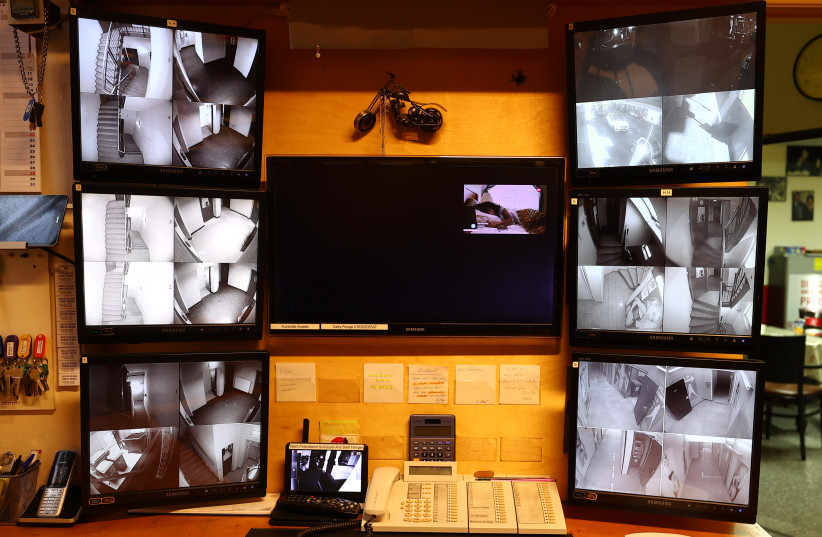When the government authorized the Shin Bet (Israel Security Agency) to get back into the coronavirus-tracking business, it broke the law.
Despite that unequivocal statement, there is some consolation in that the government broke the law in as thoughtful and as limited a manner as possible, and much of the general public would probably support the move.
How can one make sense of these two seemingly contradictory statements?
Let’s start with the law.
Between March 2020 and March 2021, the High Court of Justice and the Knesset both issued a number of rulings on whether and to what extent the Shin Bet could be involved in tracking coronavirus.

The problem from the outset is that the Shin Bet Law authorizes the agency to combat terrorism, not track its own citizens who might be sick or might have come into contact with someone who was sick.
In addition, most democracies have been wary of allowing intelligence agencies to have anything to do with their own citizens.
Yet on March 11, 2020, when the WHO declared the spread of coronavirus to be a pandemic and the whole world suddenly shut down, the government of prime minister Benjamin Netanyahu authorized the Shin Bet’s tracking of coronavirus-infected citizens on the basis of Israel’s emergency regulations.
Though in the initial stages of the first wave, the High Court and the Knesset were fearful that coronavirus had the potential to demolish society, and they eventually started exercising increasing degrees of oversight.
The Knesset was instructed to pass a full law to permit and regulate Shin Bet involvement in coronavirus-tracking, and the High Court made it clear that the initial reliance on the emergency regulations was a one-off move and would be illegal in the future.
Shin Bet tracking was then turned on and off several times as waves of the virus hit.
When a new wave came, the High Court and the Knesset held hearings and asked some tough questions, but basically, they only pressed to shut off the tracking when waves fell.
Finally, when the third wave almost completely dissipated in the spring, the Knesset blocked the government from continuing Shin Bet tracking.
Even more significantly, the law that was the basis for Shin Bet tracking since spring 2020 expired in July, and nobody tried to get it extended.
Had the government of Netanyahu or of his successor, Naftali Bennett, extended the law, they could have legally reinstated Shin Bet tracking on Sunday – even if there were still questions on a philosophical level whether such a move is healthy for Israeli democracy.
If the government has violated the law, why are there not more alarm bells going off than merely from a small minority of government ministers and human rights NGOs?
The Bennett government has learned from its predecessor’s experience, and from prior court and Knesset intervention.
Essentially, Bennett’s plan is that Shin Bet surveillance of the coronavirus will only be in effect without a real legal basis (improperly using the emergency regulations) until Thursday, while in the meantime the Knesset tries to fast-track reauthorizing Shin Bet tracking.
Moreover, if in March 2020 the Shin Bet could track just about anyone who might have come into contact with someone with coronavirus, the current five-day authorization is far more limited.
The Shin Bet can only track those who are already confirmed to be carriers of the new Omicron variant.
Bennett said on Sunday that the Shin Bet will only effort contract tracing but will leave enforcement to the police, and if Omicron leads to a broader outbreak, the agency will cease its involvement.
Many of these limitations come directly through the High Court’s last ruling in March.
It remains to be seen how the upcoming Knesset law defines criteria and numbers of infections for what a broader outbreak would be, as well as for how long the new Knesset law is allowed to run.
Bennett has rolled the dice hoping that even as human rights NGOs file petitions tomorrow against Shin Bet involvement, the High Court will not intervene before a new law is passed on Thursday.
And much of the public do not care about potential “slippery slopes” impinging on their privacy rights when they are panicked about the next new amorphous wave.
The broader question, though, that neither Bennett nor Netanyahu ever asked is: assuming some version of coronavirus will be with us for a couple of years, if not longer – is it legitimate to continue enlisting the Shin Bet to fight it?
No other democracies have done so.
So while the agency may have saved some lives in the early stages of 2020, it has become increasingly unclear as vaccines arrived and epidemiological probes improved why much of the Israeli political class are so quick and comfortable in using intelligence agencies in ways that other free countries are not.
